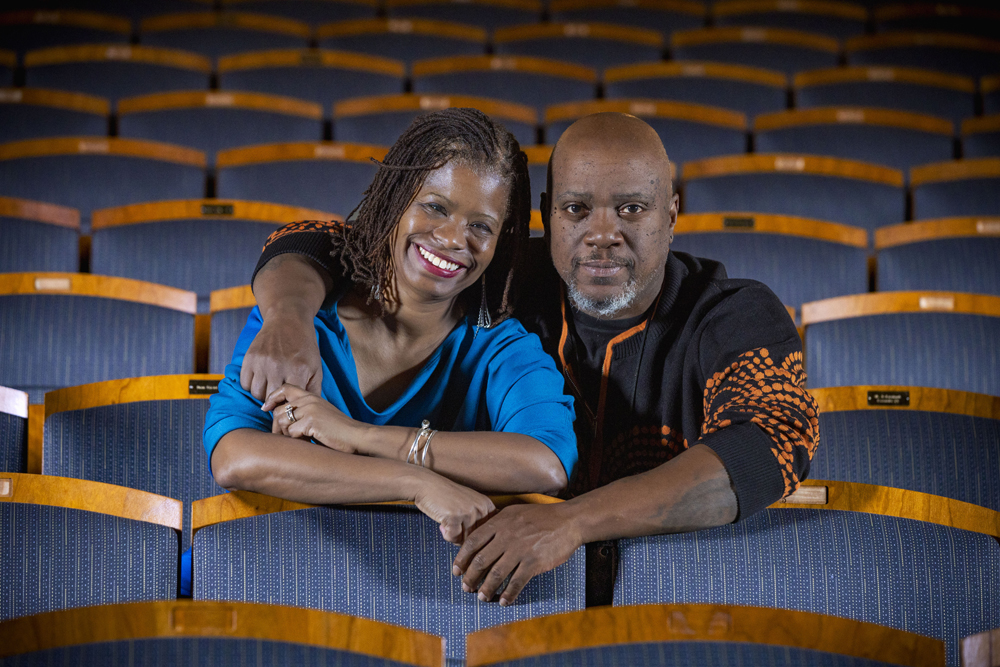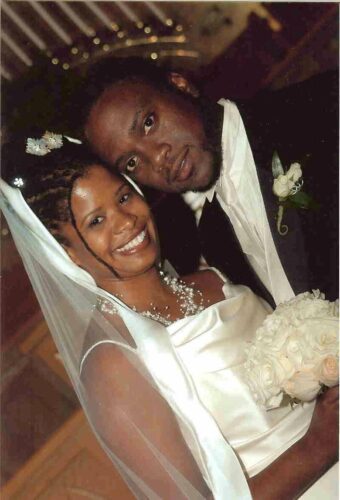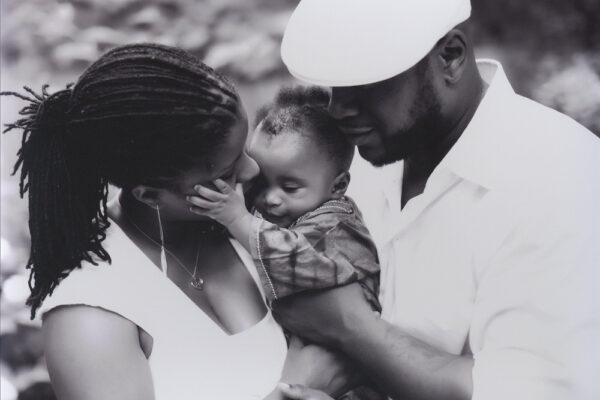Renée Alexander Craft always knew she was meant to tell stories. Growing up, she recorded everything in a journal — one with a cushioned cover that bounced back when she pressed on it. She wrote her thoughts and confessions, poetry and prose. She was an only child that grew up in an older family, learning the power and value of stories early on.
Howard Craft, on the other hand, had no intention of being a writer. But storytelling found him. His childhood was marked by the explosion of hip-hop across the country, and he started writing rap songs after hearing “Rapper’s Delight” by The Sugarhill Gang for the first time. In middle school, his teachers let him rap about the lunch menu in exchange for his attention in class. Lyrics turned into plays after he took a screenwriting class on a whim in college, and eventually, he realized he was pretty good at it.
“One of the things I love about theatre is writing the blueprint for how to tell a story,” he says. “And then all these other artists come in to build the house. It’s communal.”
The Crafts, now both professors in the UNC Department of Communication, have built careers through stories. And after finding each other, they started writing their own, which begins as many good ones do — unexpectedly.
Finding each other
The Crafts crossed paths while judging a poetry competition in Durham back in 2004. It wasn’t the first time they met, but it was the most memorable. Renée caught sight of Howard focused on his writing before the competition and noted that he seemed quiet and reserved.
She had invited him to share his work as part of the event, and when he began reading, “he went from this person who was kind of shy and intimidated to occupying his body in this really powerful way,” Renée recalls. Her interest was piqued.
The pair also happened to select the same winners for the competition. Upon finding a moment to chat after the judging, they immediately hit it off. Howard later approached a mutual friend for Renée’s number.
At the time, Renée was completing her PhD in performance studies at Northwestern University and Howard was building a career as an independent playwright and arts educator across the state of North Carolina. She was busy writing her dissertation, and he was writing plays and teaching creative writing workshops in public schools. But they made their long-distance relationship work for a few months before finding a way to come back together.
Finding Carolina
After earning her PhD in 2005, Renée leapt at the opportunity to return to the meandering brick pathways and timeless autumns at UNC-Chapel Hill, where she was offered a postdoctoral fellowship in the communication department. She had completed a bachelor’s in English and master’s in communication studies at the university and is “just about as Carolina blue as you can be,” according to Howard.
“I always say I grew up in Charlotte, but I got grown at UNC,” Renée says with a smile.
Howard figured the best shot he had at getting her to marry him was to propose on the campus she loved so dearly. She said “yes,” and by 2006, they were husband and wife.
Howard eventually carved his own path at Carolina. After accumulating accolades and praise for his powerful plays and poetry, he was hired as the Piller Professor of the Practice for Carolina’s Writing for the Screen and Stage program in 2013. As an arts educator in public schools, teaching was hardly new for him, and he has loved working with students in the university environment.
“It’s nice just being inspired by their enthusiasm and remembering being at that stage as an artist,” he says.
But navigating the world of academia as a couple is hardly a walk in the park.
“I tell people all the time that Renée has a PhD degree, and I have a barely bachelor’s,” Howard says, laughing. “She has the benefit of job security, and I have to hope they renew my contract every year.”
Merging research and art
For the Crafts, the boundary between research and art is porous. Since 2000, Renée has been studying how performance explores and reflects cultural experiences.
Her work has primarily led her to study “Congo,” an Afro-Latin community and Carnival performance tradition in Portobelo, Panama. The coastal town is often regarded as the birthplace of the Congo tradition in Panama and represents an under-researched area of African diaspora identity, culture, and performance.
As an ethnographer, she’s worked closely with this community to conduct interviews and document her findings through notes and photographs. She’s collaborated on performances, art installations, digital humanities projects, poetry, essays, and a novel — all with the goal of archiving and analyzing a unique Black diaspora performance tradition to amplify the community’s stories and history.
“It’s a project that’s pulling together so many different identities,” she shares. “I’ve loved having this opportunity that has let me get to be all my different selves.”
Howard’s approach mirrors this deep, immersive curiosity. When he writes, he dives into research. By exploring historical events and ways of life, his plays are rooted in interviews, archives, and firsthand accounts, all woven together into compelling narratives.
“When I write a Christmas piece, I’m playing Christmas music. I’m bouncing elf names off of Renée. It just takes over,” he says. “Everything becomes that until I’m finished.”
At the heart of his work are stories of the Black experience and mobility; stories about everyday, mundane Blackness that center on community. He comes from a storytelling family in eastern North Carolina and often pulls from that background as he writes.
His plays, such as “Changing Same: The Cold-Blooded Murder of Booker T. Spicely” and “Freight: The Five Incarnations of Abel Green,” grapple with what it means to be Black in America. The first revisits the story of a Black World War II veteran murdered for challenging segregation, while “Freight” traces a single Black man’s life across multiple eras, exploring the weight of history and identity.
Like her husband, Renée finds her storytelling shaped by a desire to better understand identity, history, and culture — and to share those discoveries with the world.
“We’re curious about the world, and we work out some of that curiosity through research and art,” she says.
Creating together
Even though the Crafts work at the same university, in the same department, they hardly ever see each other on campus. They have had very distinct careers, both successful on their own paths. But occasionally they do cross over.
They’ve done poetry readings, workshops, and exhibitions together, even featuring each other in their work. Renée has directed one of Howard’s plays, and he has written poetry and essays for projects she’s worked on.
“Our collaborations and the ways we live and work together make me a better artist,” Renée says. “It makes me truer to myself.”
In her current research project, “Patacones, Paintbrushes, and Power: Historicizing an African Diaspora Arts Collective at the Crossroads of the Americas,” Renée will include her husband’s work among the other U.S. and Panamanian arts collective participants in an upcoming artist exhibition, podcast, edited book, and digital humanities project.
“Her confidence in me is really humbling,” he says. “But we trust each other.”
Usually, their collaboration looks more like advice, insights, praise, and criticism. They bounce ideas off of each other, inspire each other, and pull for each other
Beyond their art, they’ve also created a family together. And a huge part of how they think about their work and their legacy is through their son, Bakari. They’ve rediscovered the wonder of the world through his eyes, fueling their creativity in new ways.
“One of the things that anchors our work is this value of story,” Renée says. “It holds history, power, identity, culture — and love. Stories not only narrate the past, but they shape the future. They build worlds. We are intentional about the world that we are creating through the stories we tell and the ones we create with and for our son.”




